- Home
- Toni Morrison
Mouth Full of Blood Page 8
Mouth Full of Blood Read online
Page 8
And how can I leave out happiness? How could I omit the secret ingredients, the combination of which will invite, if not guarantee it? A little clarity, a bit of daring, some luck, and a great deal of self-regard. Then life is bountiful and one becomes both loved and lovable.
The future, responsibility, goodness—I’d love talking about all that, but not the last one: happiness. It makes me uncomfortable. Uneasy. I am not interested in your happiness. I am not sure it’s all it’s cracked up to be. I know, of course, that its pursuit (if not its achievement) is a legal one amended into the Constitution. I know that whole industries are designed to help you identify, attain, and feel it. One more article of clothing, the ultimate telephone, the best-appointed boat, an instantly timeless camera taking hundreds of shots of nothing to outlast the ages, the fastest diet, the perfect ice cream with all the pleasure of sugar and cream and none of their dangers. I know, also, happiness has been the real, if covert, target of your labors here, your choices of companions, of the profession, perhaps, that you will enter. And I do want you to have it; you clearly deserve it. Everyone does. And I hope it continues, or comes, effortlessly, quickly, always. Still, I am not interested in it. Not yours, nor mine nor anybody’s. I don’t think we can afford it anymore. I don’t think it delivers the goods. Most important, it gets in the way of everything worth doing. There was a time, for most of the history of the human race, in fact, when to contemplate and strive for happiness was critical, necessarily compelling. But I am convinced that focusing on it now has gotten quite out of hand. It has become a bankrupt idea, the vocabulary of which is frightening: money, things, protection, control, speed, and more.
I’d like to substitute something else for its search. Something urgent, something neither the world nor you can continue without. I assume you have been trained to think—to have an intelligent encounter with problem-solving. It’s certainly what you will be expected to do. But I want to talk about the step before that. The preamble to problem-solving. I want to talk about the activity you were always warned against as being wasteful, impractical, hopeless. I want to talk about dreaming. Not the activity of the sleeping brain, but rather the activity of a wakened, alert one. Not idle wishful speculation, but engaged, directed daytime vision. Entrance into another’s space, someone else’s situation, sphere. Projection, if you like. By dreaming the self permits intimacy with the Other without the risk of being the Other. And this intimacy that comes from pointed imagining should precede our decision-making, our cause-mongering, our action. We are in a mess, you know; we have to get out, and only the archaic definition of the word “dreaming” will save us: “to envision; a series of images of unusual vividness, clarity, order, and significance.” Unusual, clarity, order, significance, vividness. Undertaking that kind of dreaming we avoid complicating what is simple or simplifying what is complicated, soiling instead of solving, ruining what should be revered. We avoid substituting slogans like “national will” for national intelligence and perception. National will? What kind? Informed? Uninformed? Obstinate South African national will? Nineteen forty Germany’s national will? Hanging on to destructive theses simply because one developed them half a century ago? These are comic book solutions to biblical problems in nuclear times. We must do all we can to imagine the Other before we presume to solve the problems work and life demand of us.
Dream the world as it ought to be, imagine what it would feel like not to be living in a world loaded with zero-life weapons manned by people willing to loose them, develop them, or store them for money, or power, or data, but never for your life and never for mine. What would it be like to live in a world where the solution of serious, learned people to practically every big problem was not to kill somebody? Narcotics trade? Whom shall we kill—or lock up? Disease? Whom shall we let die—or lock up? Self-rule by a neighboring (or even distant) country? Whom shall we slaughter? Famine? What is an acceptable death rate? Unemployment? Homelessness? What is the tolerable starvation rate? Too many babies by all the wrong mothers? Too many people living too long? Even our goodwill is couched in killing. We are asked to give millions of dollars to “Feed the Children”—until they are fourteen, that is, at which point we are forced to pay billions to blow their brains out if they make demands in their own interests but not ours. Are their deaths not timely enough for us? They will all die anyway—as we will. All the babies, all the elderly, all the fettered and unenfranchised, the ill, the idle—just like us. Maybe after, before, or even because of us, but we will all be together by and by.
If that is the consequence of our sophisticated thinking, our expert problem-solving, then we need to step back and refine the process that precedes it: experimental, intimate, ranging daylight vision that is not ashamed to dream, to visualize the Other.
Imagine, envision what it would be like to know that your comfort, your fun, your safety are not based on the deprivation of another. It’s possible. But not if we are committed to outmoded paradigms, to moribund thinking that has not been preceded or dappled by dreaming. It is possible, and now it is necessary. Necessary because if you do not feed the hungry, they will eat you, and the manner of their eating is as varied as it is fierce. They will eat your houses, your neighborhoods, your cities; sleep in your lobbies, your lanes, your gardens, your intersections. They will eat your revenue because there will never be enough prisons, and wards, and hospitals, and welfare hotels to accommodate them. And in their search for your kind of happiness, they will eat your children, render them stunned and terrified, desperate for the sleeping life narcotics can offer. We may already have lost the creative intelligence of two-thirds of a new generation to this poisoned, violent sleep—a torpor so brutal they cannot wake from it for fear they will remember it; a sleep of such numbed recklessness it turns our own wakefulness to dread.
It is possible to live without defending property or surrendering it, but we will never live that way unless our thinking is shot through with dreams. And it is necessary now because if you don’t educate the unschooled with the very best you have, don’t give them the help, the courtesy, the respect you had in becoming educated, then they will educate themselves, and the things they will teach and the things they will learn will destabilize all that you know. And by education I do not mean hobbling the mind, but liberating it; by education I do not mean passing on monologues, but engaging in dialogues. Listening, assuming sometimes that I have a history, a language, a view, an idea, a specificity. Assuming that what I know may be useful, may enhance what you know, may extend or complete it. My memory is as necessary to yours as your memory is to mine. Before we look for a “usable past” we ought to know all of the past. Before we start “reclaiming a legacy” we ought to know exactly what that legacy is—all of it and where it came from. In the business of education there are no minorities, only minor thinking. For if education requires tuition but no meaning, if it is to be about nothing other than careers, if it is to be about nothing other than defining and husbanding beauty or isolating goods and making sure enrichment is the privilege of the few, then it can be stopped in the sixth grade, or the sixth century, when it had been mastered. The rest is reinforcement. The function of twentieth-century education must be to produce humane human beings. To refuse to continue to produce generation after generation of people trained to make expedient decisions rather than humane ones.
Oh, what would it be like without putrefying hatred we have been told and taught was inevitable among humans? Inevitable? Natural? After five million years? After four thousand years we haven’t imagined anything better than that? Which one of us was born that way? Which one of us prefers it that way? Hating, grabbing, despising? Racism is a scholarly pursuit and it always has been. It is not gravity or ocean tides. It is the invention of our minor thinkers, our minor leaders, minor scholars, and our major entrepreneurs. It can be uninvented, deconstructed, and its annihilation begins with visualizing its absence, losing it, and if it can’t be lost at once or by saying so, then by behaving as if, in fact, ou
r free life depended on it, because it does. If I spend my life despising you because of your race, or class, or religion, I become your slave. If you spend yours hating me for similar reasons, it is because you are my slave. I own your energy, your fear, your intellect. I determine where you live, how you live, what your work is, your definition of excellence, and I set limits to your ability to love. I will have shaped your life. That is the gift of your hatred; you are mine.
Well, now, you may be asking yourself: What is all this? I can’t save the world. What about my life? I didn’t ask to come here. I didn’t ask to be born. Didn’t you? I put it to you that you did. You not only asked to be born, you insisted on your life. That is why you are here. No other reason. It was too easy not to be. Now that you are here, you have to do something you respect, don’t you? Your parents did not dream you up—you did. I am simply urging you to continue the dream you started. For dreaming is not irresponsible; it is first-order human business. It is not entertainment; it is work. When Martin Luther King Jr. said, “I have a dream,” he was not playing; he was serious. When he imagined it, envisioned it, created it in his own mind it began to be, and we must dream it too to give it the heft and stretch and longevity it deserves. Don’t let anybody, anybody convince you this is the way the world is and therefore must be. It must be the way it ought to be. Full employment is possible. Positing a workforce of 20 to 30 percent of the population of the future is yearning greed, not inevitable economics.
All public schools can be hospitable, welcoming, safe learning environments. No one, teachers or students, prefers mindlessness, and in some places such environments have already been built.
Appetites for self-murder can be eradicated. No addict or suicide wants to be one.
Enemies, races, and nations can live together. Even I in the last forty years have seen deadly national enemies become warm, mutually supporting friends, and four national friends become enemies. And it doesn’t take forty years to witness it. Anybody over eight years old has witnessed the expedient, commercial, almost whimsical nature of national friendships. I have seen resources committed to the disenfranchised, the discredited, the unlucky, and before we could reap the harvest of those resources, before legislation put in place could work (twenty years?) it was disassembled. Like stopping the union in 1796 because there were problems. Building a bridge halfway and saying we can’t get there from here.
That determined commitment must be redreamed, rethought, reactivated—by me and by you. Otherwise, as nationalism and racisms solidify, as coasts and villages become and remain the sources of turmoil and dispute, as eagles and doves alike hover over the remaining sources of raw wealth on this earth, as guns and gold and cocaine topple grain, technology, and medicine to win first place in world trade, we will end up with a world not worth sharing or dreaming about.
We are already life-chosen by ourselves. Humans, and as far as we know there are no others. We are the moral inhabitants of the galaxy. Why trash that magnificent obligation after working so hard in the womb to assume it? You will be in positions that matter. Positions in which you can decide the nature and quality of other people’s lives. Your errors may be irrevocable. So when you enter those places of trust, or power, dream a little before you think, so your thoughts, your solutions, your directions, your choices about who lives and who doesn’t, about who flourishes and who doesn’t will be worth the very sacred life you have chosen to live. You are not helpless. You are not heartless. And you have time.
The Slavebody and the Blackbody
In 1988, the same year James Cameron opened America’s Black Holocaust Museum here in Milwaukee, I responded to an interviewer’s question. Having published a novel investigating the lives of a family born into bondage, I was being asked about the need for, the purpose in articulating that unspeakable part of American history. The need for remembering the men, the women, the children who survived or did not survive the three-hundred-odd years of international commerce in which their bodies, their minds, their talents, their children, their labor were exchanged for money—money they could lay no claim to. Since the argument for shunning bad memories or sublimating them was so strong and, in some quarters, understood not only to be progressive but healthy, why would I want to disturb the scars, the keloids, that civil war, civic battle, and time itself had covered? The slavebody was dead, wasn’t it? The blackbody was alive, wasn’t it? Not just walking, and talking, and working, and reproducing itself, but flourishing, enjoying the benefits of full citizenship and the fruits of its own labor. The question seemed to suggest that, whatever the level of accomplishment, little good could come from writing a book that peeled away the layers of scar tissue that the blackbody had grown in order to obscure, if not annihilate, the slavebody underneath.
My answer was personal. It came from a kind of exhaustion that followed the completion of my novel. An irritability. A sorrow.
“There is no place,” I said, “where you or I can go, to think about or not think about, to summon the presences of, or recollect the absences of slaves; nothing that reminds us of the ones who made the journey and of those who did not make it. There is no suitable memorial or plaque or wreath or wall or park or skyscraper lobby. There is no three-hundred-foot tower. There’s no small bench by the road. There is not even a tree scored with an initial that I can visit or you can visit in Charleston or Savannah or New York or Providence or, better still, on the banks of the Mississippi.”
“Somebody told me,” I continued, “that there is a gentleman in Washington who makes his living by taking busloads of people around to see the monuments of the city. He has complained because there is never anything there about black people that he can show. I can’t explain to you why I think it’s important, but I really do. I think it would refresh. Not only that, not only for black people. It could suggest the moral clarity among white people when they were at their best, when they risked something, when they didn’t have to risk and could have chosen to be silent; there’s no monument for that either.” Except in the names of institutions that pay homage to a white person’s care, or generosity: Spingarn, General Howard, Spelman, etc. “I don’t have any model in mind,” I said, “or any person, or even any art form. I just have the hunger for a permanent place. It doesn’t have to be a huge, monumental face cut into a mountain. It can be small, some place where you can put your feet up. It can be a tree. It doesn’t have to be a statue of liberty.”
As you can tell I was feeling quite bereft when I made those comments.
When I use the term “slavebody” to distinguish it from “blackbody,” I mean to underscore the fact that slavery and racism are two separate phenomena. The origins of slavery are not necessarily (or even ordinarily) racist. Selling, owning people is an old commerce. There are probably no people in this auditorium among whose ancestors or within whose tribe there were no slaves. If you are Christian, among your people were slaves; if you are Jewish, among your people were slaves; if you are Muslim, among your people were the enslaved. If your ancestors are European they lived under the serfdom of eastern Europe, the tenancy of feudalism in England, in Viking Europe, Visigothic Spain, or fifteenth- or sixteenth-century Venice, Genoa, and Florence. The majority population of ancient Rome and ancient Greece—all were deliberately constructed slave societies. Medieval Ghana; Songhai Mali; the Dahomey and Ashanti kingdoms. Slavery was critical to the world of Islam and systematic in the Orient, including a thousand years in Korea alone. We are all implicated in the institution. The colonists of the New World, patterning their economies on those earlier and contemporary societies that were dependent on free or forced labor, tried to enslave indigenous populations and would have imported any foreign group available, capable, and survivable. Available because highly organized African kingdoms could provide laborers to Europeans; capable because they were clever, strong, and adaptable; survivable because they were creative, spiritual, and intensely interested in their children—foreigners from Africa fit the bill.
Not only the origins but the consequences of slavery are not always racist. What is “peculiar” about New World slavery is not its existence but its conversion into the tenacity of racism. The dishonor associated with having been enslaved does not inevitably doom one’s heirs to vilification, demonization, or crucifixion. What sustains these latter is racism. Much of what made New World slavery exceptional was the highly identifiable racial signs of its population in which skin color, primarily but not exclusively, interfered with the ability of subsequent generations to merge into the nonslave population. For them there was virtually no chance to hide, disguise, or elude former slave status, for a marked visibility enforced the division between former slave and nonslave (although history defies the distinction) and supported racial hierarchy. The ease, therefore, of moving from the dishonor associated with the slavebody to the contempt in which the freed blackbody was held became almost seamless because the intervening years of the Enlightenment saw a marriage of aesthetics and science and a move toward transcendent whiteness. In this racism the slavebody disappears but the blackbody remains and is morphed into a synonym for poor people, a synonym for criminalism and a flash point for public policy. For there is no discourse in economics, in education, in housing, in religion, in health care, in entertainment, in the criminal justice system, in welfare, in labor policy—in almost any of the national debates that continue to baffle us—in which the blackbody is not the elephant in the room; the ghost in the machine; the subject, if not the topic, of the negotiations.
This museum’s projects have enormous powers. First is the power of memorializing. The impulse to memorialize certain events, people, and populations comes at certain times. When what has happened is finally understood or is a forthright assertion of civic or personal pride, tombs and palaces are built, flowers heaped, statues rise, archives, hospitals, parks, and museums are constructed. Time being such an important factor in this process, most of the participants in the events being remembered never see them. But the growth of this country in the sixteenth, seventeenth, and eighteenth centuries, resting heavily on the availability of free labor, is complicated and exceptional. Exceptional because of its length and its chattel nature; complex because of its intricate relationship to the cultural, economic, and intellectual development of the nation. That is what must be remembered. There is another power this project has: of making us aware of the ever flexible, always adaptable, persistently slippery forms of modern racism in which the slavebody is reconstructed and reenters the blackbody as an American form of ethnic cleansing in which a monstrously large number of black men and women are carefully swept into prisons, where they become once again free labor; once again corralled for profit. Make no mistake, the privatization of prisons is less about unburdening taxpayers than it is about providing bankrupt communities with sources of income and especially about providing corporations with a captured population available for unpaid labor.

 Paradise
Paradise Beloved
Beloved Home
Home Tar Baby
Tar Baby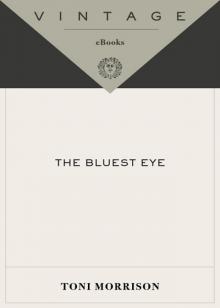 The Bluest Eye
The Bluest Eye Jazz
Jazz Love
Love Sula
Sula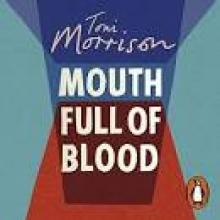 Mouth Full of Blood
Mouth Full of Blood Song of Solomon
Song of Solomon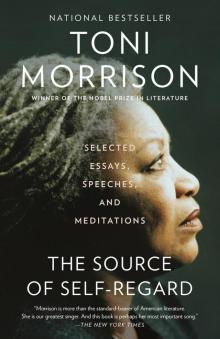 The Source of Self-Regard
The Source of Self-Regard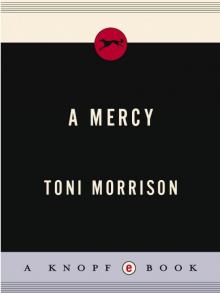 A Mercy
A Mercy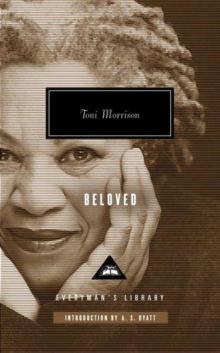 Beloved_a novel
Beloved_a novel